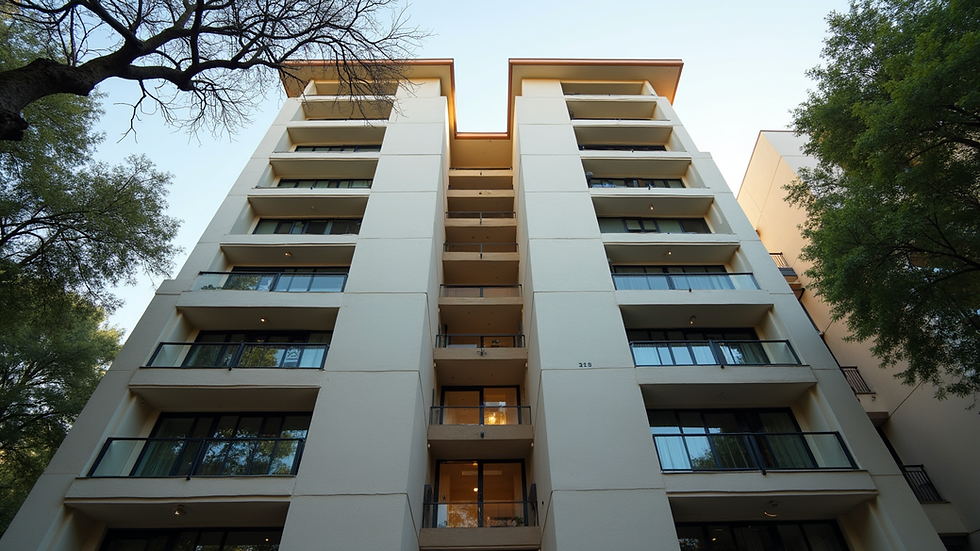Top Mistakes Renters Make (And How to Avoid Them)
- Justin Reyes

- Feb 21, 2025
- 4 min read

Renting an apartment can be an exhilarating yet daunting experience. Whether you’re a seasoned renter or embarking on a new city adventure, there are common pitfalls that can drain your time, money, and peace of mind. To help you make an informed rental decision, let’s delve into the top mistakes renters make—and how to steer clear of them.
1. Neglecting to Thoroughly Read the Lease Agreement:
Many renters rush through their lease agreement without grasping its intricate details. This oversight can lead to unexpected fees, stringent lease break policies, or surprising restrictions.
To avoid this pitfall, take your time to read the lease meticulously. Don’t hesitate to seek clarification from your landlord or leasing agent if any terms remain unclear. Pay close attention to policies regarding rent increases, maintenance responsibilities, and early lease termination.
2. Overlooking the Total Cost of Living:
Rent is just one expense. Many renters overlook the additional costs associated with utilities, parking fees, pet fees, and renter’s insurance. These expenses can quickly accumulate, significantly impacting your overall budget.
To avoid this oversight, inquire about all potential costs before signing the lease. Create a comprehensive budget that includes rent, utilities, internet, and other expenses. Consider apartments that offer utilities included to simplify your financial burden.
3. Relying Solely on Online Listings:
Pictures can be misleading. Some renters rely solely on online listings, only to discover that the actual unit falls short of the captivating photos.
To avoid this disappointment, schedule a personal tour of the apartment before making a decision. This hands-on experience will allow you to assess the unit’s condition, layout, and overall feel, ensuring that it aligns with your expectations.
**1. Touring the Apartment:**
- Always tour the apartment in person or request a live video tour if you’re moving from out of town.
- Check for signs of damage, mold, pests, or maintenance issues.
- Verify that the unit you’re viewing is the exact one you’ll be renting.
**2. Overlooking the Neighborhood:**
- An apartment might appear perfect, but if the neighborhood isn’t safe, convenient, or aligns with your lifestyle, it could be a problem.
- To avoid this, visit the area at various times of the day to gauge safety and noise levels.
- Research crime rates and nearby amenities such as grocery stores, public transportation, and restaurants.
- Seek honest feedback from current tenants or neighbors.
**3. Neglecting the Landlord or Management Company’s Reputation:**
- A bad landlord or unresponsive management company can make renting a nightmare.
- To avoid this, read online reviews and check ratings on platforms like Google, Yelp, or apartment review sites.
- Ask current or past tenants about their experiences with maintenance and communication.
- Ensure that the landlord complies with local rental laws and provides necessary disclosures.
**4. Skipping Renters Insurance:**
- Many renters mistakenly believe they don’t need insurance, only to regret it after a break-in, fire, or water damage incident.
- To avoid this, purchase a renters insurance policy—it’s usually inexpensive (often under $20 per month).
- Make sure the policy covers your personal property, liability, and additional living expenses in case of emergencies.
7. Not Documenting the Apartment’s Condition Before Moving In
Some landlords deduct security deposits for damages that existed before you moved in. Without proper documentation, you could be held liable for these damages.
To avoid this issue, take detailed photos and videos of the entire apartment upon move-in. Additionally, create a move-in checklist and have the landlord sign it. Keep a copy of this checklist for your records.
8. Not Understanding the Lease Break Policy
Unexpected life changes, such as new jobs, breakups, or family emergencies, can occur, and some renters may not realize the significant financial implications of breaking a lease early.
To avoid this situation, it’s crucial to understand the lease break policy before signing. Look for options like subletting or early termination clauses. If you anticipate a short stay, consider opting for a month-to-month lease instead of a long-term commitment.
9. Paying Rent Late (or Not Knowing Late Fees)
Missing rent payments can have serious consequences, including damaging your credit score, incurring substantial late fees, and even leading to eviction.
To avoid these issues, set up automatic payments or calendar reminders to ensure timely rent payments. Familiarize yourself with your lease’s late fee policy to understand the applicable charges. If you anticipate payment difficulties, communicate with your landlord promptly. Some landlords may be willing to offer flexibility or waive late fees in certain circumstances..
10. Not Getting Everything in Writing
Verbal agreements arent enforceable, and relying on them can lead to disputes over repairs, rent adjustments, or promises made by landlords.
How to Avoid It:
Always get agreements in writing, whether it’s about maintenance, move-out terms, or special arrangements.
Keep copies of all emails, receipts, and written notices. If anything changes, request a lease addendum to reflect the new terms.
Final Thoughts
Avoiding these common mistakes can make your renting experience smoother and stress-free. Being proactive, asking the right questions, and reading the fine print will help you find the right apartment and avoid costly surprises.
Are you currently apartment hunting? Have you encountered any rental mistakes before? Share your experiences in the comments below!



Comments